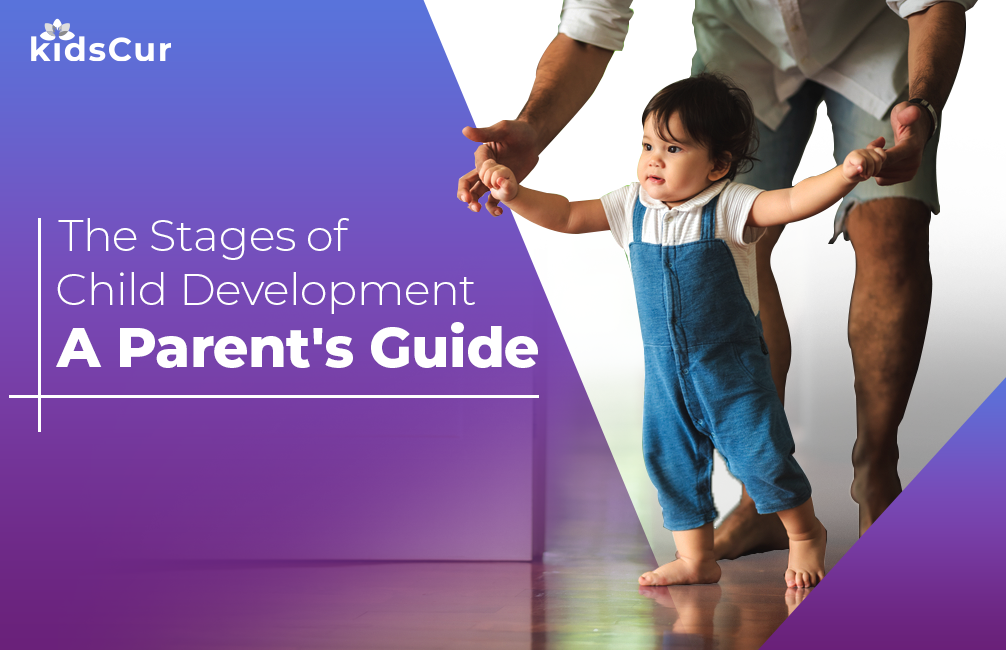If you’re a parent, then you know that children go through different stages of development as they grow up. But what exactly does that mean? In this blog post, we’ll take a look at the different stages of child development and what parents can expect at each stage.
Stages of Child Development
The three stages of child development are explained below:
The First Three Years: Birth to Toddlerhood
During the first three years of life, your child will undergo some of the most dramatic changes of their entire life. They’ll go from being completely dependent on you for everything to becoming more independent and mobile. Here are some of the things you can expect during this child development stage:
- Your child will learn to roll over, sit up, crawl, and walk.
- Your child will start to babble and say their first words.
- Your child will begin to develop a sense of object permanence (i.e., they’ll understand that objects still exist even when they can’t see them).
- Your child will start to develop separation anxiety (i.e., they’ll become clingy and cry when you leave them).
During this child development stage, it’s important to provide your child with a safe and supportive environment in which they can explore and learn. Try to encourage their physical development by providing them with plenty of opportunities to move around, such as putting them in a baby bouncer or letting them crawl around on the floor.
You can also encourage their cognitive development by reading to them, singing songs with them, and playing simple games with them.
The Middle Years: Preschool and Kindergarten
During the middle years, your child will continue to grow and develop at an amazing rate. They’ll learn how to communicate more effectively, solve problems, and make friends. Here are some of the things you can expect during this child development stage:
- Your child will learn how to use basic words and phrases (e.g., “I want”, “I don’t like that”, “No”).
- Your child will start to use more complex sentences (e.g., “I want to go outside”).
- Your child will begin to understand basic concepts such as numbers and shapes.
- Your child will start attending preschool or kindergarten.
During this stage, it’s important to provide your child with opportunities to practice their communication skills. You can do this by talking with them often, asking them questions, and listening carefully to their answers.
You can also help them practice their problem-solving skills by giving them simple tasks to do (e.g., putting away their toys) and allowing them to figure out how to do it on their own.
Finally, you can encourage their social development by signing them up for extracurricular activities (e.g., sports teams, dance classes) or playdates with other children their age.
The Later Years: Elementary School and Beyond
During the later years, your child will continue growing and developing in many different ways. They’ll learn how to think more abstractly, control their emotions, and deal with stress in healthy ways. Here are some of the things you can expect during this stage:
- Your child will learn how to read and write well enough for schoolwork.
- Your child will start making friends and spending time with peers outside of school hours.
- Your child will begin dealing with more complex emotions (e.g. jealousy, anger).
- Your child will face new challenges such as moving houses or starting a new school year.
During this stage, parents need to provide support while also encouraging independence. You can do this by helping your child plan for upcoming transitions, teaching healthy coping mechanisms for dealing with stress, and modeling emotional regulation yourself.
You can also encourage your child’s social development by continuing to sign them up for extracurricular activities or playdates. Allowing your children some unstructured time each day is also important so that they have a chance to relax, unwind, and just be kids.
Child development is an amazing process that happens in stages. As a parent, it’s important to be aware of the different stages so that you know what to expect and how best to support your child during each one. By providing a safe, loving, and supportive environment, you can help your children thrive as they grow and develop into happy, healthy adults.
You can check your child’s development with India’s best baby growth chart and baby milestone tracker from KidsCur.
Download the KidsCur App Now!
Also Read: Things to Know About Child Development



